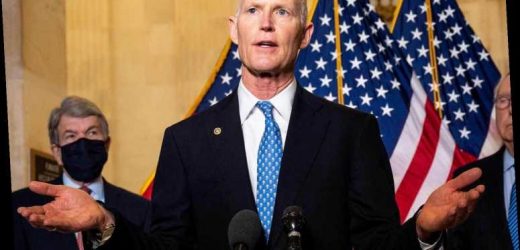REPUBLICAN Rick Scott has been the senator of Florida since 2019.
Prior to his post, Scott, 68, was the 45th governor of Florida for eight years, from 2011 to 2019.
Who is Rick Scott?
Prior to his career in politics, Scott served in the US Navy in 1970.
After serving in the Navy he became a law firm partner and co-founded Columbia Hospital Corporation.
Columbia later merged with another corporation to form Columbia/HCA, which eventually became the nation's largest private for-profit health care company.
He was pressured to resign as chief executive of Columbia/HCA in 1997, after it was discovered that the company defrauded Medicare, Medicad and other federal programs during his tenure.
The Department of Justice ultimately fined the company $1.7billion.
He began his career in politics in 2010, when he successfully ran for governor of Florida defeating Bill McCollum.
Scott won the 2018 US Senate election, defeating Democratic incumbent Bill Nelson.
Scott was one of the GOP members who attempted to overturn the 2020 US presidential election.
What is Rick Scott's net worth?
Rick Scott has a reported $220million net worth, according to Celebrity Net Worth.
Is he married?
In 1972, Scott married his high school sweetheart Frances Annette Holland.
The couple were 20-years-old when they decided to tie the knot.
They have two daughters and six grandsons.
What did he say states should do with the stimulus money?
Scott called on states to reject the money their cities were poised to receive from the American Rescue Act.
In an open letter to governors and mayors, Scott called the $1.9trillion relief package “massive, wasteful and non-targeted," urging states to follow his lead and send a message to Congress to “quit recklessly spending other people’s money.”
“By rejecting and returning any unneeded funds, as well as funds unrelated to COVID-19, you would be taking responsible action to avoid wasting scarce tax dollars,” he wrote.
“After all, every dollar in this package is borrowed.”
Scott called his request “simple and common sense,” adding that money slated for state and local governments is “wholly unrelated to responding to the pandemic.”
Source: Read Full Article






